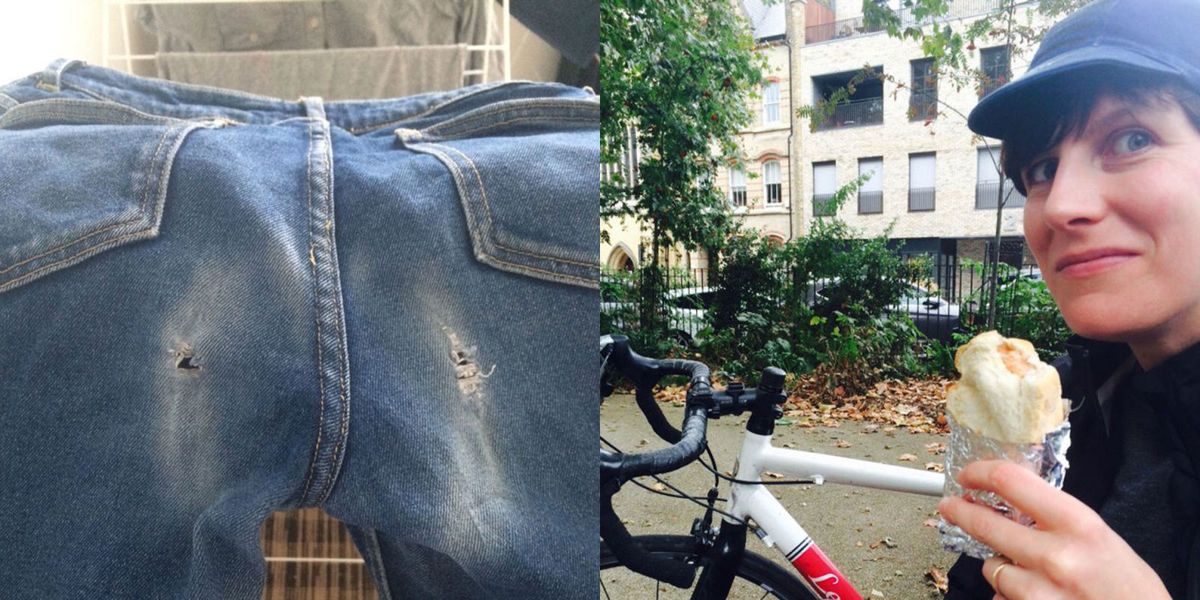Since Michelle McGagh has been a personal finance journalist in London for the past 10 years,
my friends, family and colleagues assumed I was brilliant with money – but that wasn’t strictly true,
Michelle McGagh explains in her latest Telegraph essay. After realizing that she had recently spent a lot of money on “unnecessary” things like coffee, meals out, and clothes, she decided to stop spending for a year, starting on Black Friday 2015.
Pit stop between seeing houses and a fashion show. My cycling chic probably won't cut it with the fashionistas pic.twitter.com/ZIWDTklkOE
— Michelle McGagh (@mmcgagh) September 17, 2016
She couldn’t afford to spend anything, so she made a list of everything she needed to buy: “mortgage, utilities, life insurance, charity donations, broadband, and cell phone bills [less than $2,000 per month].” She would also buy basic toiletries like toothpaste, deodorant, shampoo, etc., and food for herself and her husband. They agreed to spend about $35 a week on groceries as a couple:
But there was no budget for luxuries – that meant no cinema trips, no nights in the pub, no takeaways or restaurant meals, no new clothes, no holidays, no gym memberships, not even a KitKat or cheeky cheesecake from the supermarket. And certainly no flat whites from Pret.
Even though her husband thought the challenge was too hard, McGagh threw herself into it. She rode her bike everywhere, wore out her clothes, and eventually, as her extra money grew, she started overpaying her mortgage, which made her very happy.
I’m grateful to have disposable income to save and feel I should make the most of it – I hope I have encouraged other people to reconsider their spending patterns too.
I think these jeans have had it #anotheronebitesthedust pic.twitter.com/1sE6Pn2xCS
— Michelle McGagh (@mmcgagh) November 12, 2016
Still, she missed out on a lot, and not everyone was happy with her choice. She was accused of
poverty tourism, but there is a big difference between poverty and frugality. This experiment was not about living in poverty because poverty isn’t a choice. I could still pay my mortgage, bills and food. The last year has been an experiment in extreme frugality and choosing not to buy, rather than not having a choice.
Anyone want some hair? I seem to have quite a lot – time to get the clippers out! pic.twitter.com/JhWIesnUnN
— Michelle McGagh (@mmcgagh) October 26, 2016
In the end, she had about $23,000 more money than she had when she started. Winter was hard, but by spring she had learned to enjoy her free time and the outdoors more. Her clothes were ruined from biking so much, and she needed a haircut, but by the end of the year, she didn’t want to spend any money. She did buy a round of beers for her friends at midnight on Black Friday, as well as a plane ticket to see her grandfather, but that was it.
I was too hungover to post this yesterday but here's me buying a round of drinks for my mates on Saturday night pic.twitter.com/PqzARconHS
— Michelle McGagh (@mmcgagh) November 28, 2016









